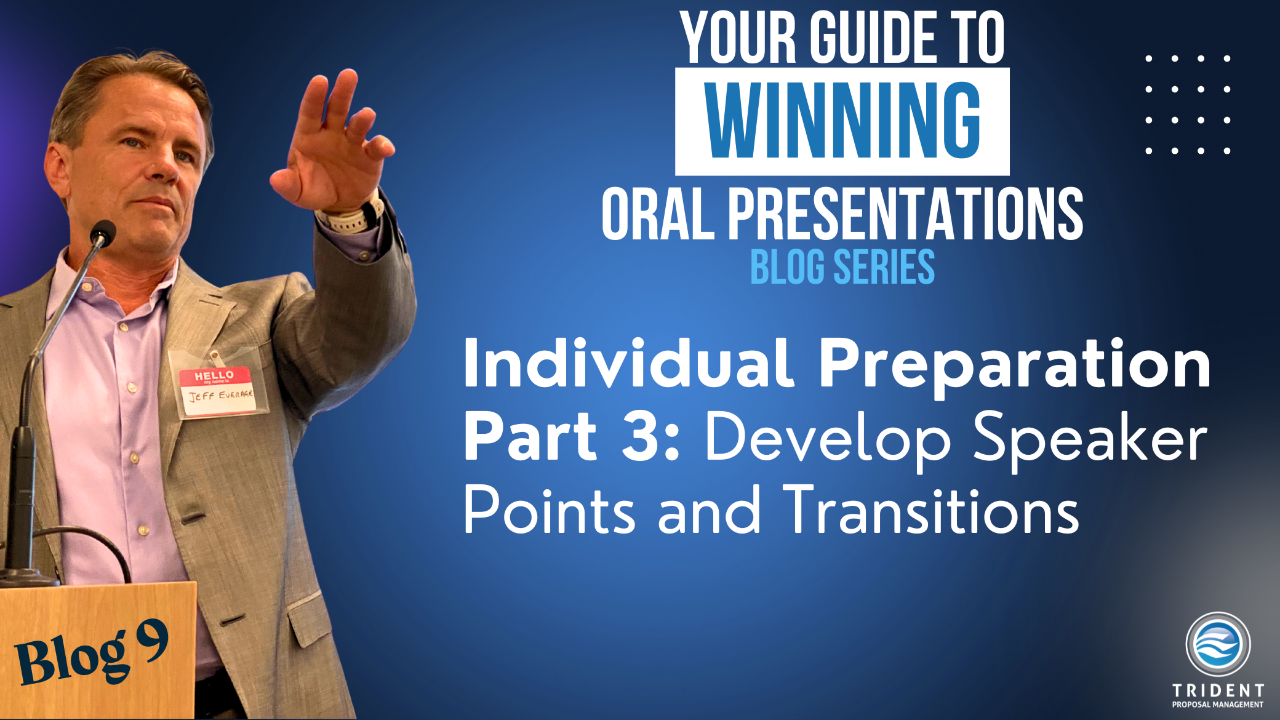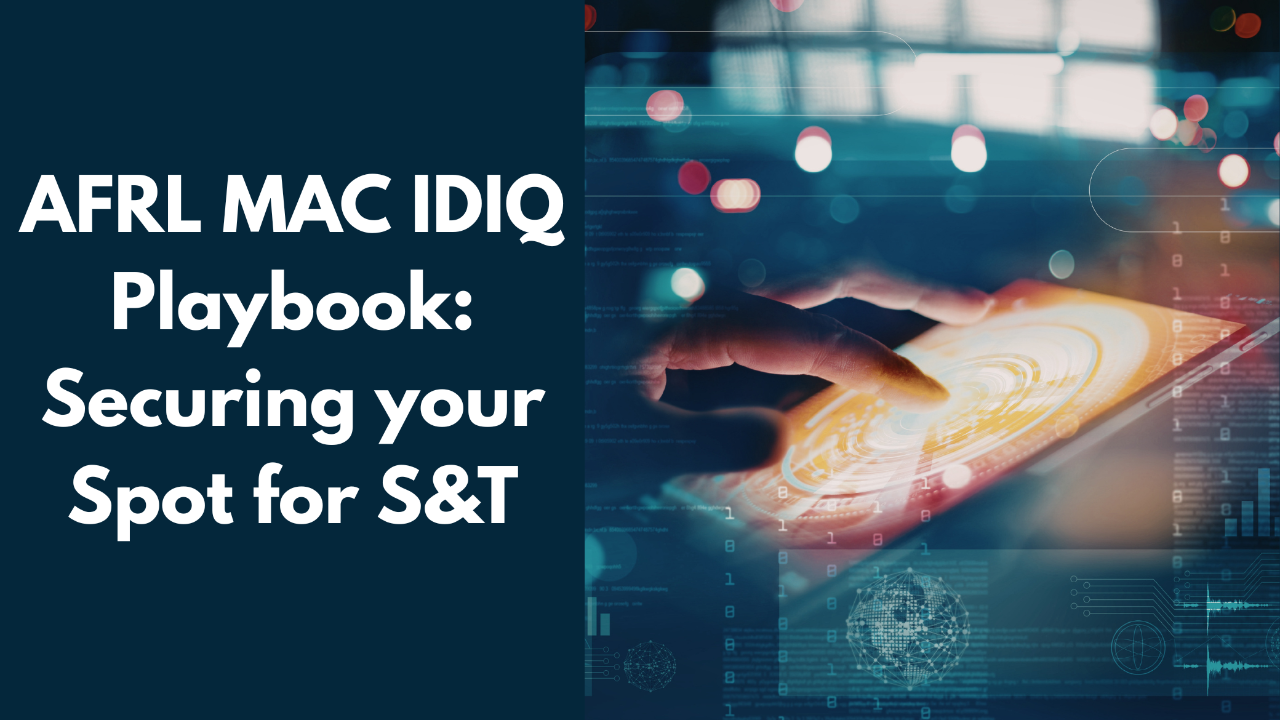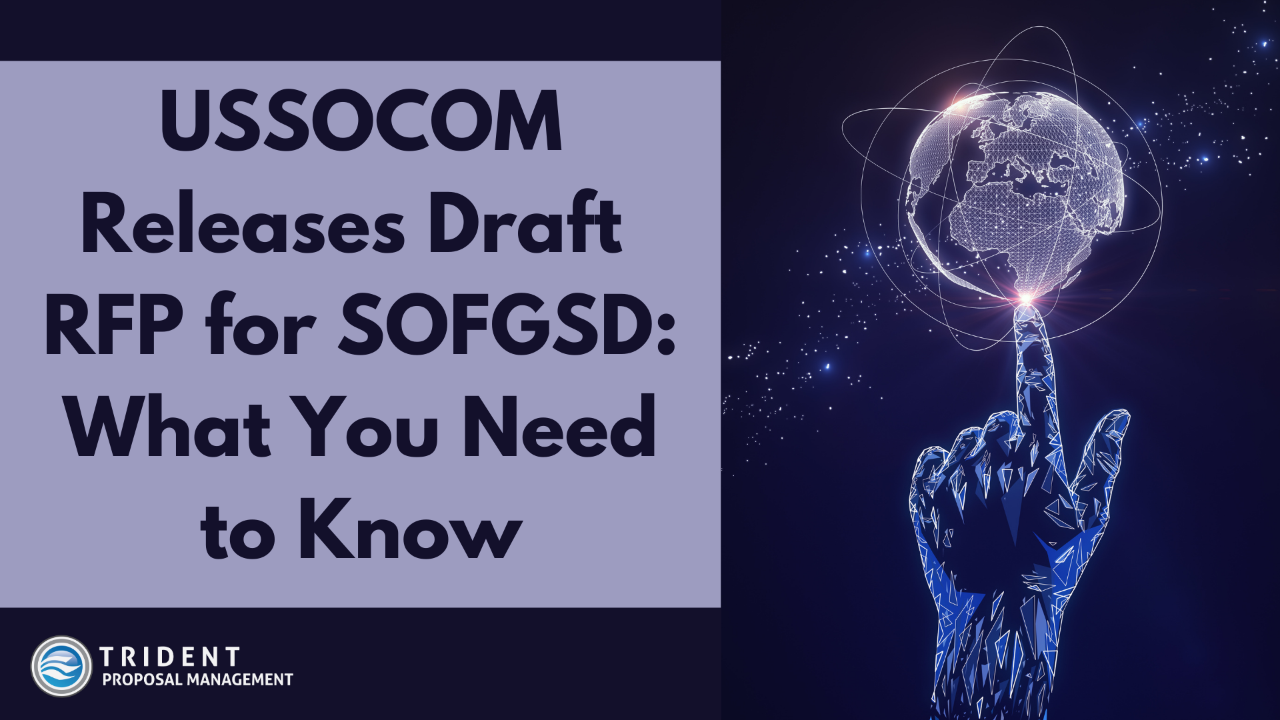7 Pitfalls To Avoid. How To Get a Polaris Award
Apr 14, 2021Don't forget to register for our webinar series on how to become a prime on the Polaris GWAC IDIQ.
We gave our proposal managers and contracts experts the current draft of the GSA Polaris RFP to find the biggest pitfalls they anticipate small businesses will have in responding. Avoiding these issues will increase your Pwin and keep you from wasting time, money, and effort on this proposal. Let's review them!
Pitfall #1: Not bidding, but for the wrong reasons.
It's true that there are a lot of eligibility requirements for GSA Polaris, and there are some non-negotiable disqualifiers [check them out here]. But don't count yourself out of a bid simply because you feel too busy now to get organized properly. With an anticipated five year master ordering period (plus a 5-year option period) and no maximum ceiling, this multiple award contract is a must-consider for all IT service-oriented small businesses!
RECOMMENDATION: Let a third-party help you plan and coordinate a compliant response now.
Pitfall #2: Crafting a faulty Bid Strategy.
Most of the eligibility requirements are binary, but don't be lulled into thinking you will be able to put your proposal together in a week. Preparing your response is going to take some time -- especially if you are missing paperwork or need to renew any certifications. You must be able to demonstrate proven, quality performance -- not just assure the Government you have the potential to be successful. Priming on this contract carries additional responsibilities that can't be delegated to teammates -- and "pass throughs" are prohibited!
RECOMMENDATION: Think through proposal preparation and contract management/delivery. Select your projects carefully so you aren't disqualified on a technicality, and start tracking down or correcting your documentation now!
Pitfall #3: Forming too big and too complex of a team.
Each team member you select needs to have the same attention to detail when it comes to contract admin. That's on top of demonstrating quality, qualifying performance in the right areas that complement your company's strengths. The more teammates you add, the more requirements you need to verify. Also, stacking experience in a performance area doesn't guarantee a competitive advantage -- most categories have a maximum number of projects that you can score additional points on, and that threshold is lower than the number of projects you can submit in total.
RECOMMENDATION: Look for the teammates who can add value by helping you score additional points for projects that involved multiple Federal customers, OCONUS performance, cost-reimbursement contracts, etc. Have them fill out the same Project Evaluation sheet [download ours here] and prove their qualifications to you first!
Pitfall #4: Not preparing the right way (claims vs. evidence).
GSA Polaris isn't a proposal you can creatively write your way on to by stretching definitions of relevance or adding a lot of additional justifying text. You have to be able to prove, largely using documents authored and maintained by entities other than your company, that your experience qualifies.
RECOMMENDATION: Down-select projects early so you have enough time to thoroughly review and annotate your documentation and, if necessary, get substantiating documents from the requisite sources.
Pitfall #5: You think your past performance covers areas it doesn’t.
You can't re-write the past, and this is especially true on GSA Polaris. You know what you actually deliver on contracts, but does that match what's written in the Performance Work Statement? You might be surprised to see what's in black and white, especially if your support has adapted more quickly than the supporting documentation. Know what counts as evidence and know what is in your records so you can bid with confidence.
RECOMMENDATION: This is where an independent review can help you objectively determine your qualifications and/or gaps. Contact us to get an impartial, requirements-based review of your potential documentation.
Pitfall #6: Ignoring or avoiding Emerging Technology project experience.
While the word "innovation" only shows up once in the draft RFP, the request for innovation through section L.5.2.3 Emerging Technology Relevant Experience, makes Polaris different, and frankly more exciting, than the standard IT/IS services contract. Here are the 6 emerging technologies (for the GSA's definitions of each click here).
- Advanced and Quantum Computing:
- Artificial Intelligence:
- Automation Technology:
- Distributed Ledger Technology:
- Edge Computing:
- Immersive Technology:
Larger primes may avoid bidding these areas and focus on the core requirements called the "Primary Performance Areas" in section L.5.2.2.1. If you are a niche player in emerging tech, you may not realize your value as a subcontractor. This contract is replacing Alliant 2 SB because that contract could not meet the evolving IT needs of its Federal customers, so innovation and emerging technology count here!
RECOMMENDATION: Primes look for sub-contractors that score well with emerging tech projects and drive up their score and also show the client a broader range of services that extend into the future. Smaller emerging technology companies should market themselves to viable primes to get on Polaris.Pitfall #7: Expecting "Work" without hard work.
Calibrate your definition of what success looks like on Polaris -- your goal should staying on the contract and making it work for you, not just winning the initial award. Think through how you will manage work once you're on the contract, and let that plan of action inform your strategic hiring, teaming, or business development decisions accordingly.
- Download our GSA Polaris eligibility checklist here
- Download our GSA Polaris self-assessment and gathering project documentation
- Sign up here for our GSA Polaris newsletter and get alerts on the contract as they happen.
- Sign up for updates from the GSA Small Business Community of Interest
- Verify your WOSB cert is in order or make updates at https://beta.certify.sba.gov



